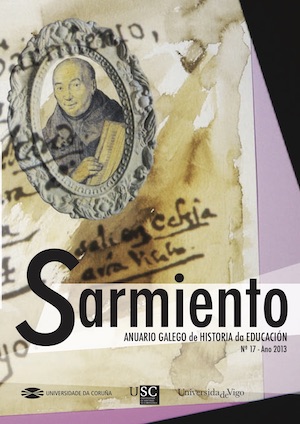Education of Women in the 19th Century Exclusion, Dependence and Autonomy
Main Article Content
Abstract
Initially women were excluded from the system of public education designed under the liberal movement in Spain. This early exclusion would give way to partial inclusion, geared towards educating girls for their futures role as wives and mothers. The debates that arose at the Cultural Association of A Coruña, the Ateneo, in 1859 and the Hispano-Portuguese-American Pedagogical Conference in 1892 highlight the hegemony of an educational model whose intention was to consolidate the dependent status of women. But voices could be heard on both these scenes –the voices of Antonio Garcia Fuertes, Concepción Arenal and Emilia Pardo Bazán, who defended, with varying degrees of radicalism, education for autonomy. The case of Rosalía de Castro serves as a good example of the obstacles that were faced by women who chose to become writers.







